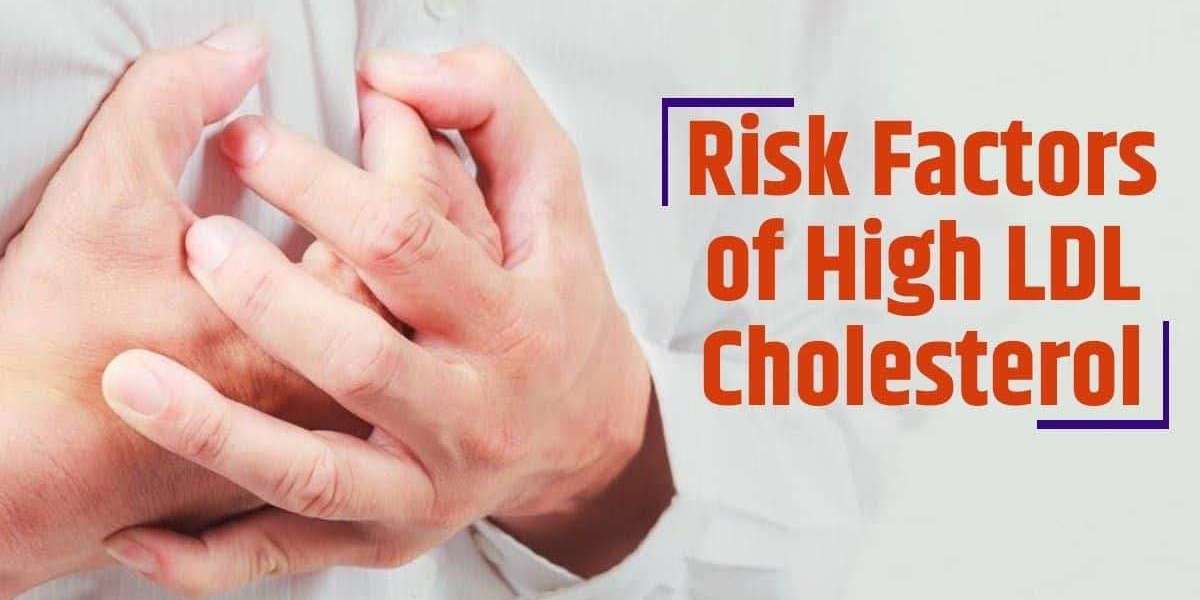High cholesterol is often called a "silent" condition because it doesn't show obvious symptoms, yet its impact on heart health can be severe and life-threatening. Many people live with high cholesterol without realizing how it can contribute to cardiovascular disease, including heart attacks and strokes. Understanding the hidden risks of high cholesterol is essential for preventing heart-related issues. Let’s explore how high cholesterol affects your heart, and why consulting a cardiologist in Pune is crucial for your health.
What is High Cholesterol?
Cholesterol is a waxy substance found in your blood that is essential for building healthy cells. However, having high levels of cholesterol can increase your risk of heart disease. Cholesterol travels through your bloodstream in two types:
- Low-Density Lipoprotein (LDL) – Often referred to as "bad cholesterol," LDL can build up on the walls of your arteries, leading to plaque formation and narrowing of the arteries.
- High-Density Lipoprotein (HDL) – Known as "good cholesterol," HDL helps remove excess cholesterol from your bloodstream, thus preventing plaque buildup.
When there’s an imbalance between these types—especially when LDL levels are too high—it can cause a variety of cardiovascular problems.
Hidden Risks of High Cholesterol for Your Heart
When there is too much LDL cholesterol in your blood, it starts to form plaque along the artery walls. Over time, this plaque narrows the arteries, making it harder for blood to flow smoothly. This condition is called atherosclerosis, and it is one of the primary causes of heart attacks and strokes.
As a result of atherosclerosis, the plaque inside the arteries can rupture, causing blood clots to form. These clots can block the blood flow to the heart, leading to a heart attack. High cholesterol levels are a major contributor to this process, making it essential to monitor and manage cholesterol levels to protect your heart.
Similar to the heart, high cholesterol can cause plaque to build up in the arteries leading to the brain. This can increase your risk of having a stroke, which occurs when blood flow to part of the brain is cut off due to a clot or narrowed artery.
4. Peripheral Artery Disease (PAD)
High cholesterol can also affect the arteries in your legs and arms, a condition known as Peripheral Artery Disease (PAD). This leads to reduced blood flow to these areas, causing pain and potential damage to tissues. In severe cases, PAD can result in the need for amputation.
5. Heart Failure
Over time, high cholesterol can weaken the heart muscle, potentially leading to heart failure. In this condition, the heart becomes unable to pump blood efficiently, causing fluid buildup and fatigue.
How to Manage High Cholesterol and Protect Your Heart
Managing high cholesterol involves a combination of lifestyle changes and medical intervention. Here’s what you can do:
1. Adopt a Heart-Healthy Diet
Focus on a diet that’s low in saturated fats and cholesterol. Foods rich in omega-3 fatty acids, such as salmon, walnuts, and flaxseeds, can help lower LDL cholesterol. Avoid trans fats found in processed foods, as they can raise LDL levels.
2. Regular Exercise
Physical activity helps raise HDL cholesterol (the good kind) while lowering LDL cholesterol. Aim for at least 30 minutes of moderate exercise most days of the week, such as walking, swimming, or cycling.
3. Medications as Prescribed
In some cases, lifestyle changes alone aren’t enough to manage cholesterol levels. Statins and other medications prescribed by a heart specialist doctor can help lower LDL cholesterol and reduce the risk of heart disease.
4. Routine Check-Ups
Regular check-ups with the best heart doctor in Pune can help you stay on top of your cholesterol levels. Early detection and intervention are key to preventing the risks associated with high cholesterol.
Why Consult the Best Cardiologist in Pune?
If you suspect that high cholesterol may be affecting your heart, consulting the best cardiologist in Pune is essential. A trained cardiologist can help assess your cholesterol levels, evaluate your heart health, and create a personalized treatment plan. For advanced care, patients can also consider visiting the best heart hospital in Mumbai for further testing and specialized treatments.
Frequently Asked Questions (FAQs)
1. How do I know if I have high cholesterol?
High cholesterol usually has no symptoms, which is why it’s called the "silent killer." The only way to know for sure is through a blood test that measures your cholesterol levels. Regular check-ups with a heart specialist doctor in Pune can help monitor these levels.
2. Can high cholesterol be completely reversed?
While high cholesterol may not be completely reversible, it can be managed effectively through diet, exercise, and medication. Early intervention can help prevent complications like heart disease.
3. At what age should I start monitoring my cholesterol levels?
It's recommended to begin monitoring cholesterol levels around age 20. However, if you have a family history of heart disease or other risk factors, you should start earlier and consult a top cardiologist in Pune.
4. How often should I get my cholesterol checked?
If you’re at risk for high cholesterol, it’s important to get checked every 1-2 years. If you’ve been diagnosed with high cholesterol, more frequent check-ups are necessary to monitor your levels.
5. Can stress affect cholesterol levels?
Chronic stress can indirectly affect cholesterol levels by contributing to unhealthy habits like poor diet and lack of exercise. Managing stress through relaxation techniques can help maintain healthy cholesterol levels.

.png=w704-h528-p-k-no-nu)






